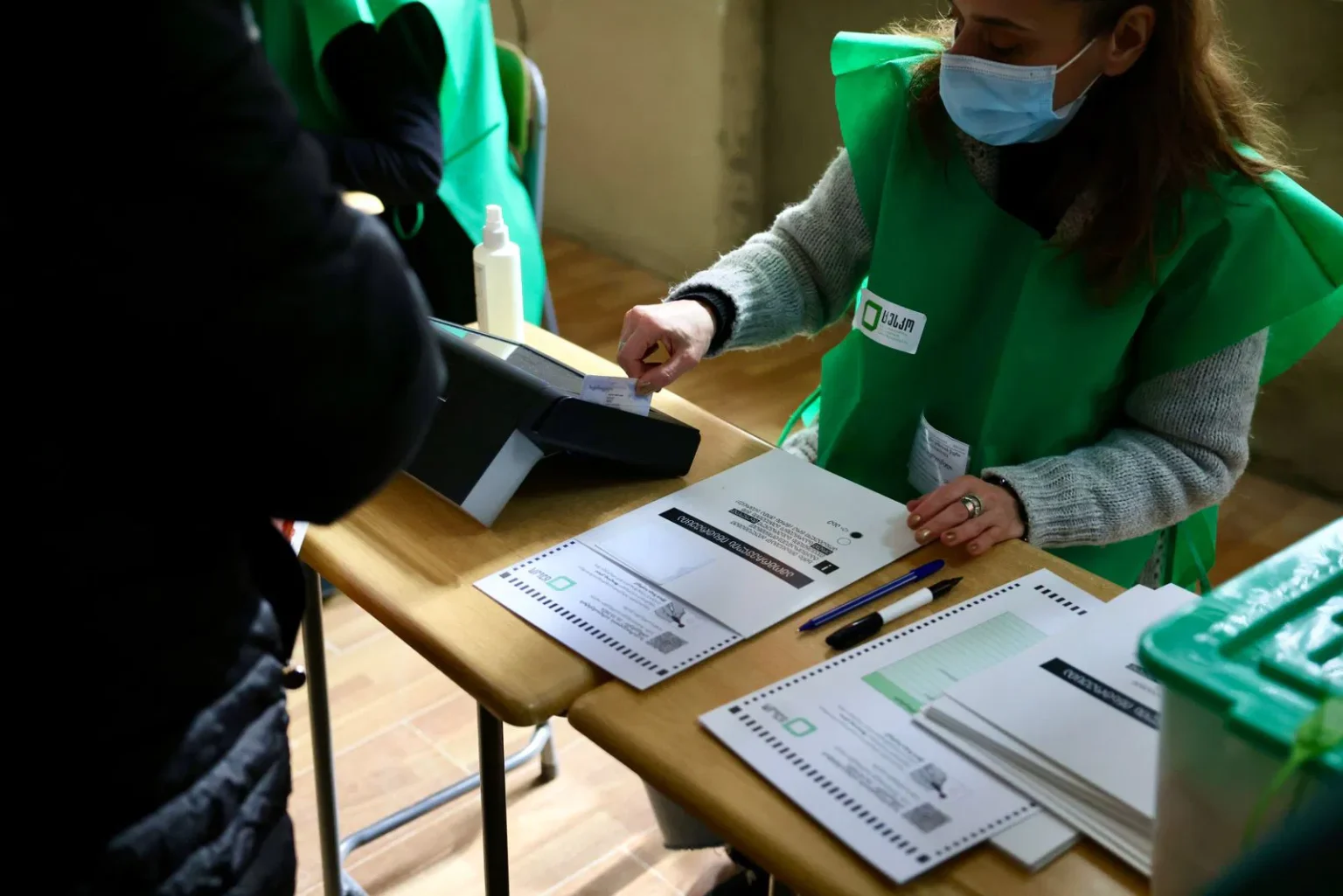My Vote, an observer mission that brought together dozens of civil society organizations in Georgia, exposed a fraud scheme in the election and called for an investigation and annulment more than 300,000.
Londa Toloraia explained the fraud scheme in a briefing held on 28 October. She stressed that other multiple methods were used to influence the results of the elections. She said that the scheme was proven by more than 370 photos, videos and complaints from eyewitnesses and observers.
Toloraia reported that the My Vote observers had registered more than 900 reports relating to violations of election procedures in 196 precincts. The violations were “consistently repeated and systemic” in nature and had a substantial impact on the results. She said that the rigging had been planned and organized well in advance.
According to the CEC’s new rules, roles were distributed at precincts among members of polling stations one week before the elections, rather than on the day of election, as they had been in previous elections. Most watchdogs were unable to monitor the process of role distribution.
Along with the creation of voter lists, reports of renting voter IDs or collecting personal information in various ways, and other forms of processing, by the ruling party, have increased on a massive scale. Despite many calls for the investigating authorities to act, they were completely inactive.
She said that the organization had obtained evidence of:
Some voters taped or inserted slips of paper into their passports. These slips contained the personal numbers of other citizens, allowing them vote using someone else’s information. In some cases they voted using photocopies of their ID cards stored in their cell phones.
These rigger-voters were assisted at the polling station by allied registrars [who were not selected on the day of the election, as in previous elections, but assigned, in advance, to the Commission district with representatives from the government]. The registrars were instructed to enter information quickly into the verification machines without marking voters with identification fluid.
It was important to avoid marking because these voters were later required to vote in another precinct. In many cases, marking rules intended to prevent irregularities have been violated. Citizens were allowed to enter voting places without being checked. Marking fluid was not applied. The marking fluid used to verify the markings was also of poor quality. This allowed markings to fade or be easily removed.
The rigger voters arranged the registration tables so close together that observers could not see the process. Observers were not allowed to get close to registrars tables or were removed if they did.
Observers from the ruling party also helped to rig the election. They were given three tasks: neutralize independent observers, ensure that rigger-voters could enter polling stations and, in some instances, create chaos so that registrars, voters and others could manipulate the process without being interfered with.
Londa Toloraia concluded that “all this allowed riggers” to cast the votes. She added, “This rigging plan does not create an imbalance, as it is common in carousels with ballot papers being taken from precincts.”
Moreover, in the process of falsifying the election, the so-called Observers of the GONGO organisations, who had three missions: neutralize the observers, bring the riggers into the precincts with the help of representatives of the ruling parties; and, if necessary, create confusion in the area to allow the registrar to carry out the verification procedure inconspicuously, and deliver the ballot without interruption to the rigger.
Toloraia reported that the working environment was difficult for the observers. They were verbally and physically harassed and forced to leave polling stations on several occasions.
The observers were able to document the evidence despite the limited observation and the hostile environment created by the abuse, including verbal, physical and psychological abuse.
She said that the district commission will receive complaints from voters seeking to annul the results of 189 polling booths, totaling 300.000 votes. She said that the number of complaints will likely increase.
She also called for the relevant authorities, including the Prosecutor’s Office, investigate the rigging of elections.
Toloraia stated that all evidence will be sent to the observers missions and the media, and is being presented to the District Election Commissions.
Read More @ civil.ge












